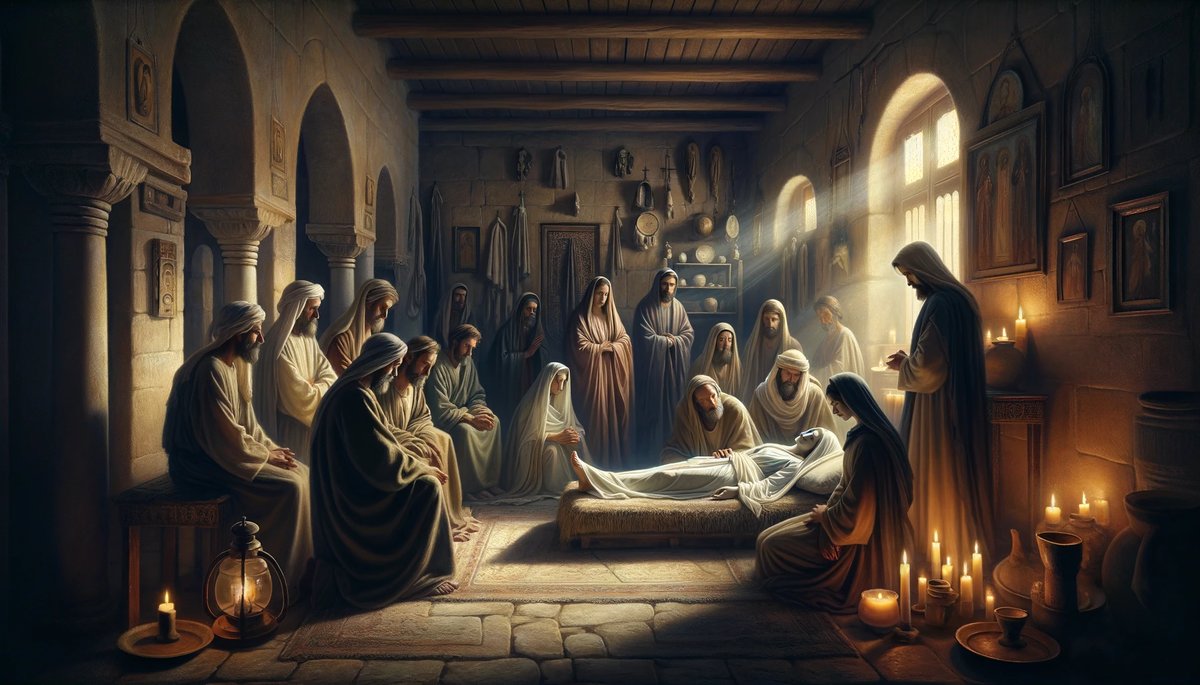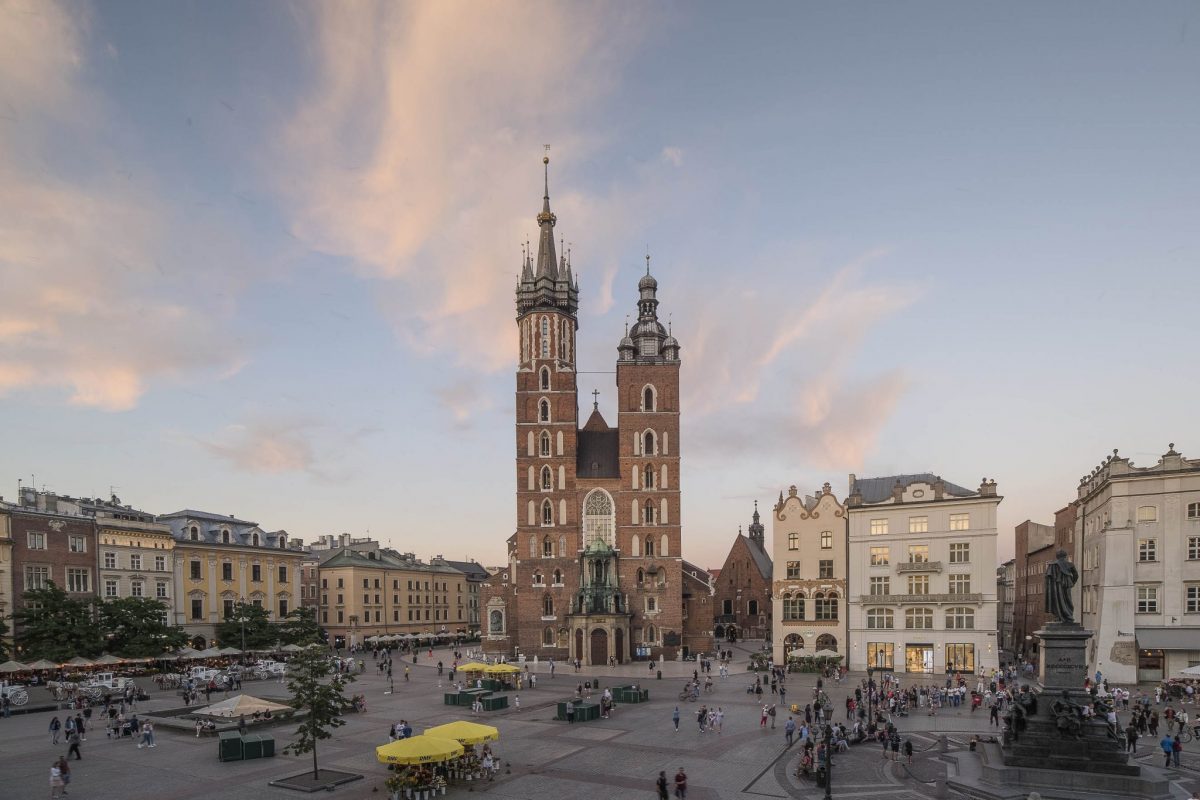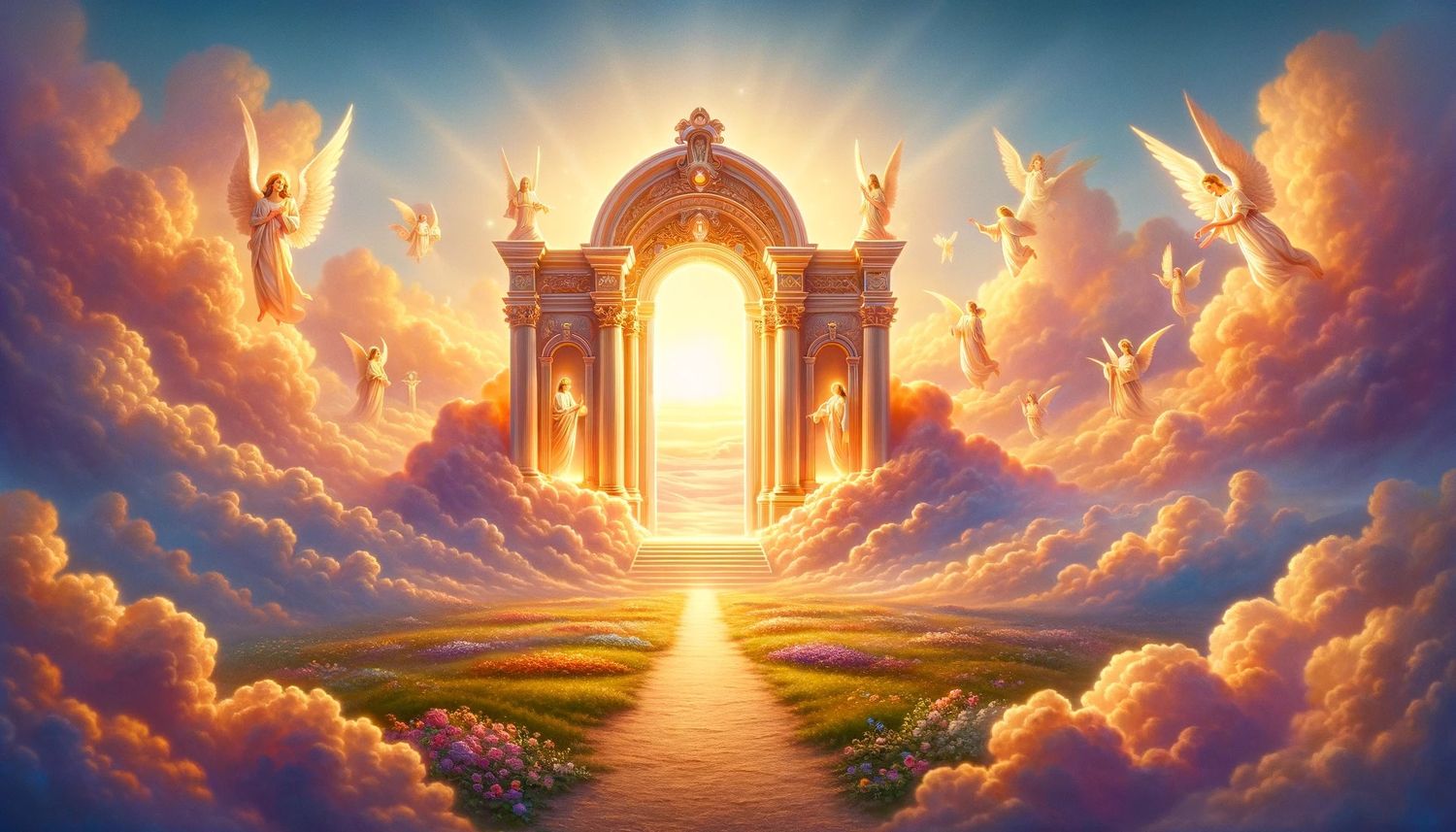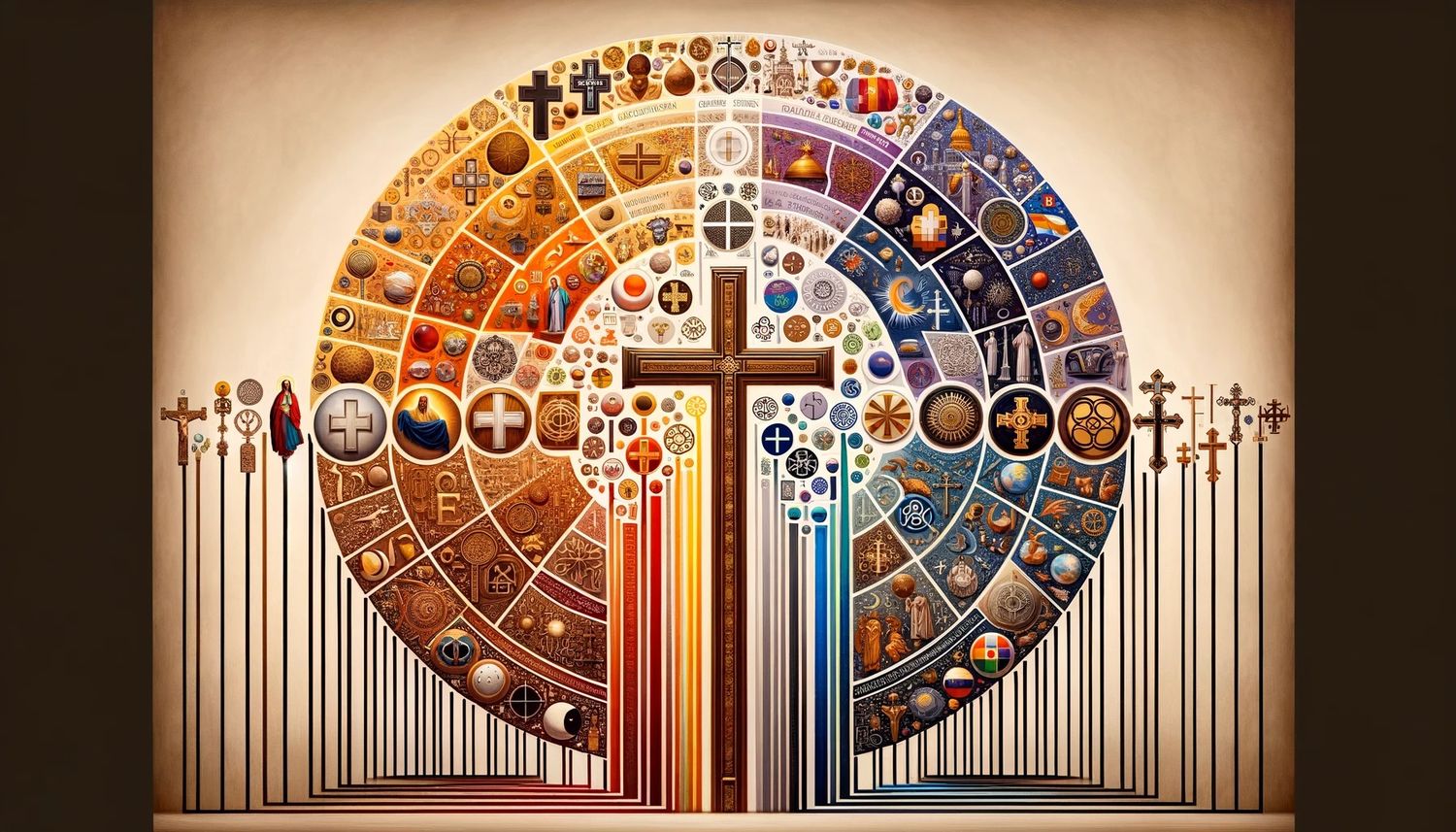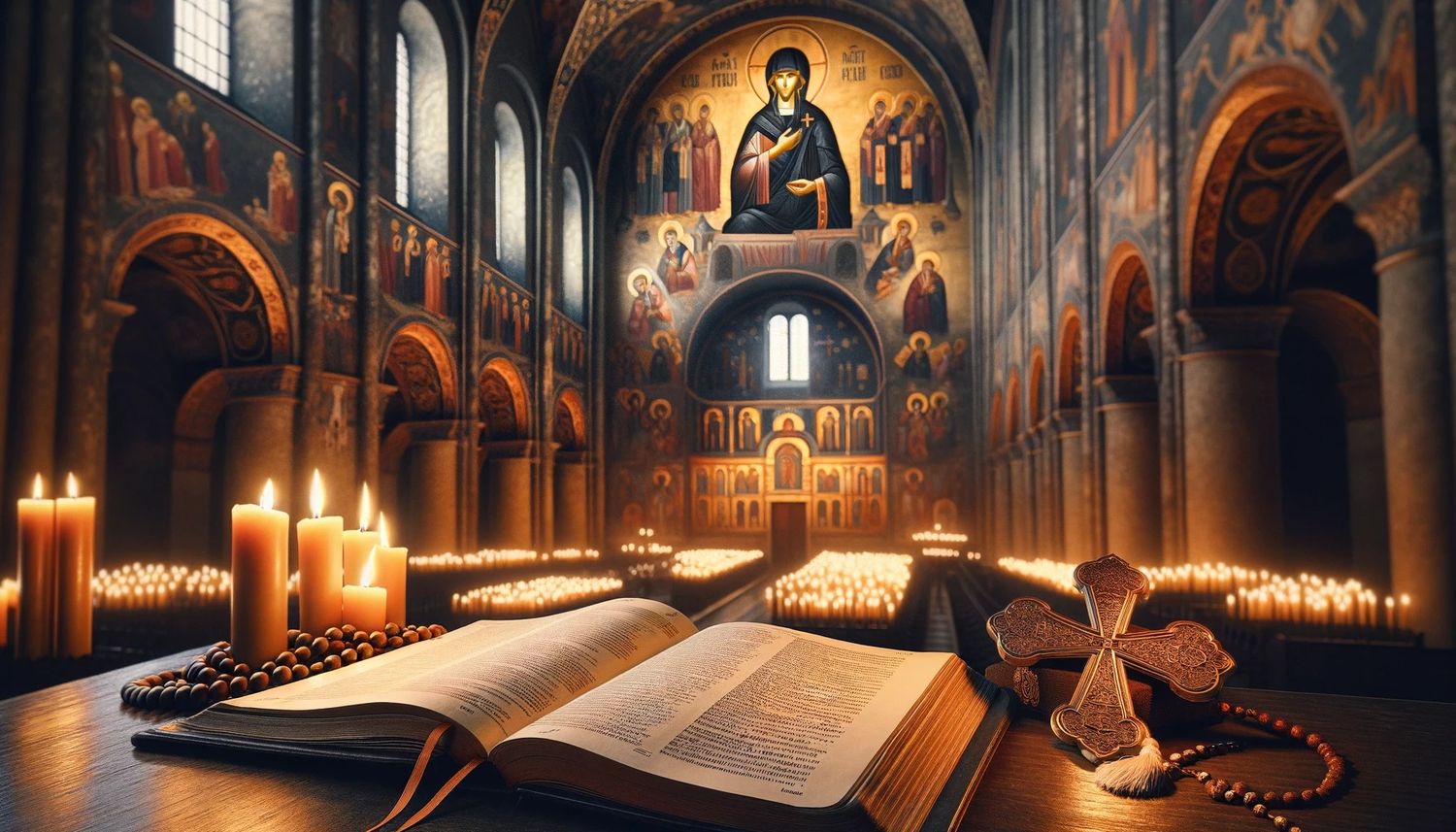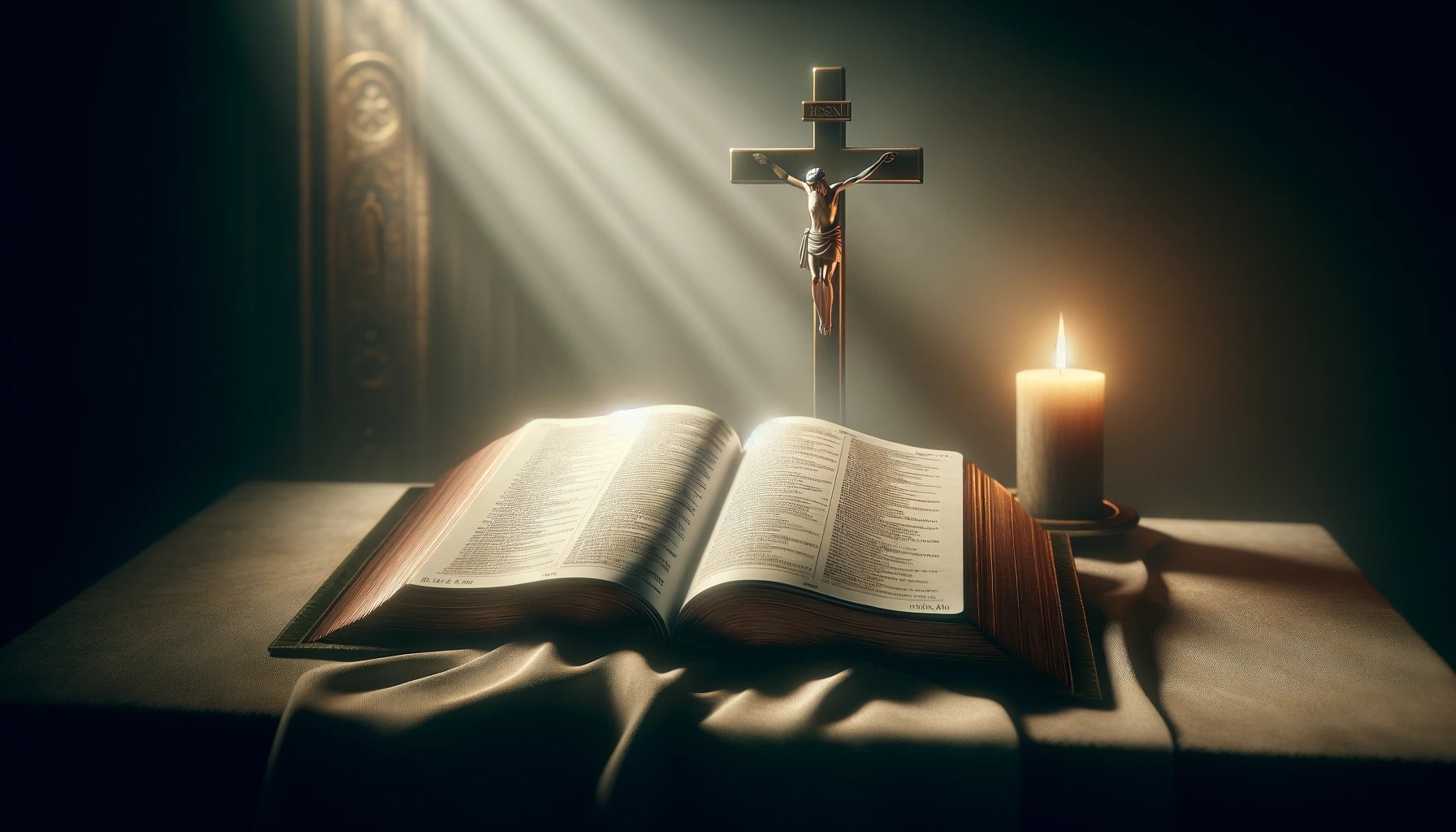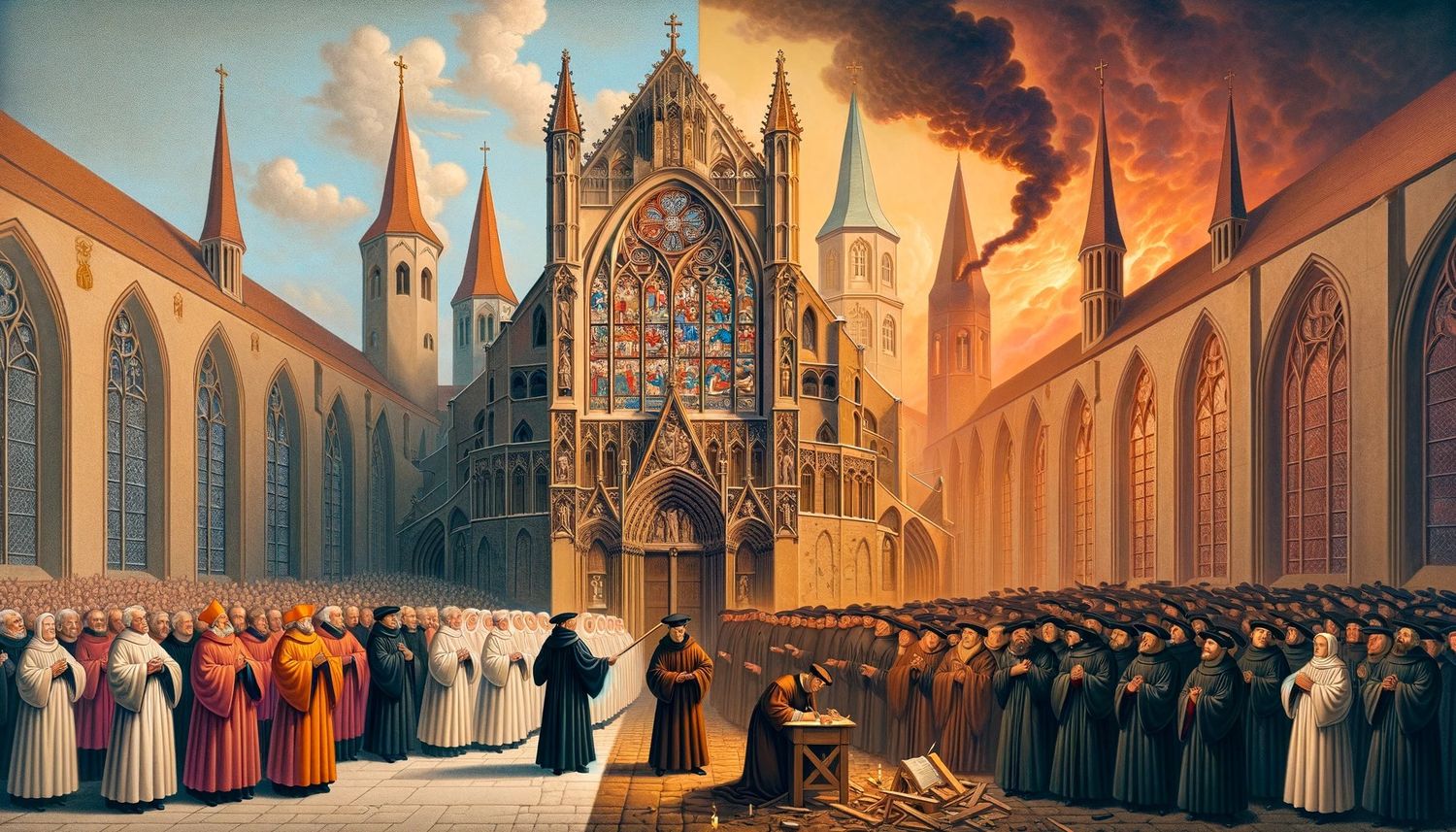Home>Theology and Spirituality>Catholicism: Mary – Why Virgin After Birth
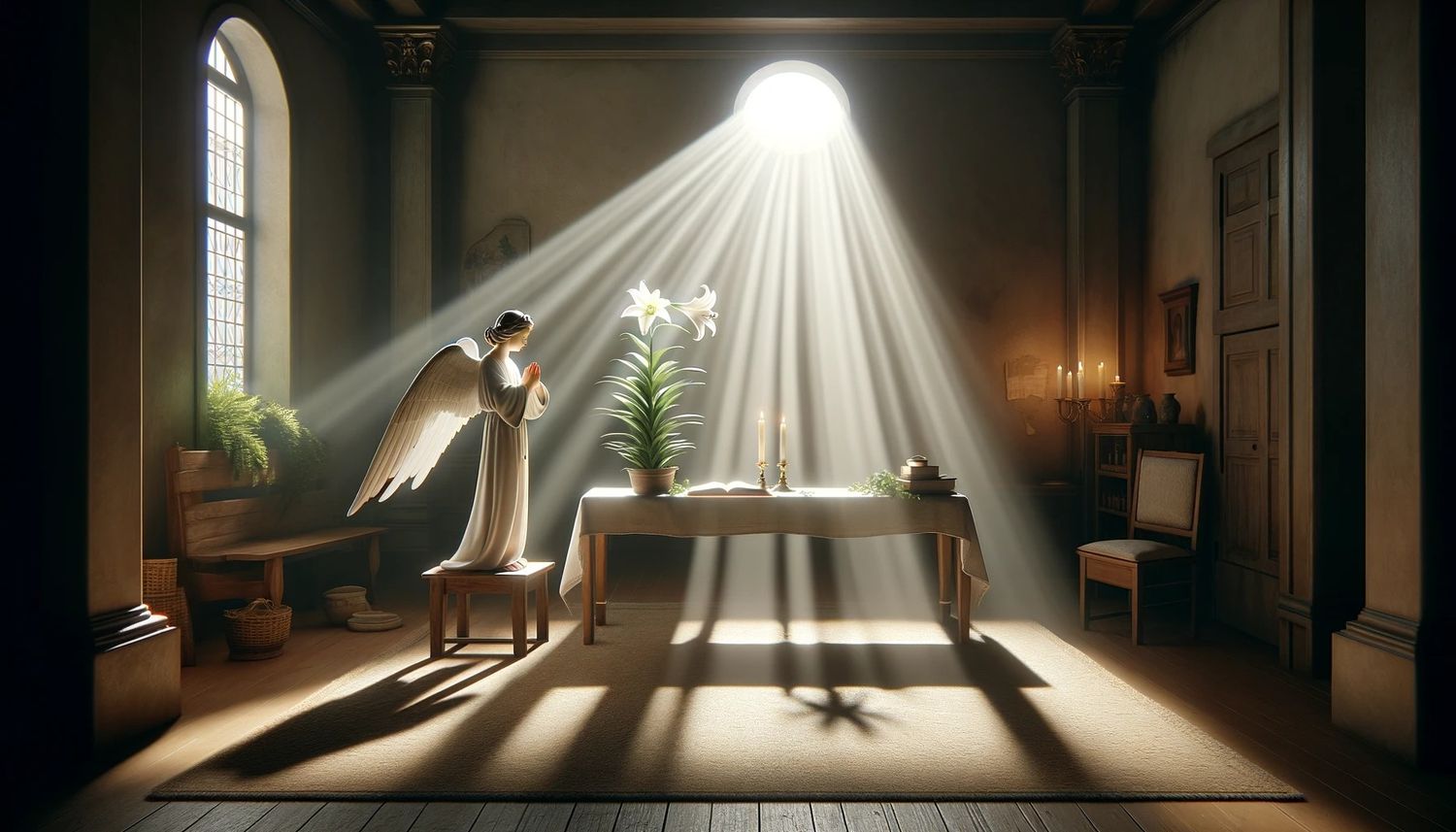

Theology and Spirituality
Catholicism: Mary – Why Virgin After Birth
Published: February 18, 2024
Ericka Andersen, an editor at Christian.net, expertly merges digital strategy with content creation, focusing on faith and societal issues. Her communication skills enhance the platform's engaging narratives, fostering meaningful dialogue on belief's impact on society.
Explore the theological significance of Mary's perpetual virginity in Catholicism. Uncover the spiritual implications of her virginity after giving birth.
(Many of the links in this article redirect to a specific reviewed product. Your purchase of these products through affiliate links helps to generate commission for Christian.net, at no extra cost. Learn more)
Table of Contents
Introduction
The concept of the Virgin Mary's perpetual virginity is a cornerstone of Catholic theology and spirituality. It has been a subject of profound reverence and theological inquiry for centuries, shaping the beliefs and practices of millions of Catholics worldwide. The notion of Mary's perpetual virginity encompasses the belief that she remained a virgin before, during, and after the birth of Jesus Christ. This aspect of Catholic doctrine holds immense significance, serving as a focal point of devotion and theological reflection within the faith.
The perpetual virginity of Mary is deeply intertwined with the mystery of the Incarnation, the belief that Jesus Christ, the Son of God, took on human flesh and was born of the Virgin Mary. This foundational belief underscores the divine nature of Christ and the unique role of Mary in the salvation narrative. As such, exploring the theological underpinnings and spiritual implications of Mary's perpetual virginity offers profound insights into the core tenets of Catholicism and the veneration of the Blessed Mother.
In this article, we will delve into the theological significance of Mary's perpetual virginity within the Catholic tradition, examining the doctrinal foundations, the role of Mary in Catholic spirituality, and the diverse theological perspectives that have shaped this enduring belief. By exploring these facets, we aim to illuminate the profound spiritual and theological dimensions of Mary's virginity and its enduring impact on the faith and devotion of Catholics around the world.
The Virgin Birth in Catholicism
The concept of the Virgin Birth holds a central place in Catholic theology, encapsulating the belief that Jesus Christ was conceived in the womb of the Virgin Mary through the power of the Holy Spirit, without the involvement of a human father. This foundational tenet is enshrined in the Gospels of Matthew and Luke, where the miraculous conception of Jesus is narrated, emphasizing the divine origin of the Savior.
Within Catholicism, the Virgin Birth is not merely a historical event but a profound theological mystery that underscores the unique nature of Christ's incarnation. It signifies the divine intervention in human history, as God, in His infinite wisdom and love, chose Mary as the vessel through which the Word became flesh. This extraordinary act of divine conception affirms the divine and human natures of Jesus, affirming his status as the Son of God and the Son of Man.
The Virgin Birth is intricately linked to the doctrine of Mary's perpetual virginity, which asserts that Mary remained a virgin before, during, and after giving birth to Jesus. This belief underscores the sacredness of Mary's role as the Mother of God and her unparalleled purity, highlighting her singular and exalted status within the Christian narrative.
In Catholic theology, the Virgin Birth is not only a testament to the miraculous nature of Christ's conception but also a profound affirmation of Mary's faith and obedience. Her willing acceptance of God's plan, as exemplified in her response to the angel Gabriel, "Let it be done to me according to your word," embodies the essence of humble submission and unwavering trust in divine providence.
Furthermore, the Virgin Birth serves as a cornerstone of Catholic devotion to Mary, fostering a deep sense of reverence and adoration for her role in the redemptive work of Christ. It is a source of profound contemplation and spiritual enrichment, inviting believers to ponder the unfathomable mystery of God's incarnation and the pivotal role of Mary in this divine drama.
In essence, the Virgin Birth stands as a testament to the wondrous intersection of the divine and the human, encapsulating the profound depths of God's love and the pivotal role of Mary in the unfolding of salvation history. Within the rich tapestry of Catholicism, the Virgin Birth remains a cherished and foundational belief, inspiring awe and reverence for the miraculous conception of the Savior and the unparalleled role of the Blessed Mother in this transcendent narrative.
The Role of Mary in Catholicism
The role of Mary in Catholicism transcends mere historical significance; it embodies a profound spiritual and theological dimension that permeates the core of the faith. Mary, revered as the Mother of God, occupies a central position in Catholic devotion and theology, serving as a model of faith, humility, and unwavering commitment to God's divine plan.
In Catholic tradition, Mary is venerated as the Theotokos, the Mother of God, underscoring her pivotal role in the Incarnation, the divine mystery of God taking on human flesh in the person of Jesus Christ. This exalted title reflects the profound recognition of Mary's unique and irreplaceable role in the salvific narrative, as her willing acceptance of God's call paved the way for the fulfillment of God's redemptive plan for humanity.
Moreover, Mary's maternal intercession is deeply ingrained in Catholic spirituality, as believers turn to her as a compassionate advocate and mediator before her Son, Jesus Christ. The devotion to Mary as the Mediatrix of graces underscores her role as a channel of divine blessings, offering solace, guidance, and maternal care to all who seek her intercession.
Furthermore, Mary's exemplary virtues, including her unwavering faith, profound humility, and selfless obedience, serve as a source of inspiration for Catholics worldwide. Her steadfast presence at the foot of the Cross during Christ's crucifixion exemplifies her enduring solidarity with humanity's suffering, making her a beacon of hope and compassion for those in distress.
In Catholic piety, Mary is revered as the embodiment of purity and holiness, reflecting the ideal of discipleship and total submission to God's will. Her fiat, "Let it be done to me according to your word," encapsulates the essence of profound trust and surrender to God's providential care, setting a paradigm for all believers to emulate in their spiritual journey.
The role of Mary in Catholicism extends beyond mere veneration; it encompasses a profound theological significance that underscores her unparalleled cooperation in God's salvific plan. As such, her enduring presence in the life of the Church and the spiritual devotion of the faithful underscores the profound impact of her maternal intercession and exemplary virtues on the fabric of Catholic faith and spirituality.
Theological Perspectives on Mary's Virginity
The theological perspectives on Mary's perpetual virginity encompass a rich tapestry of doctrinal reflections and spiritual insights within the Catholic tradition. Central to these perspectives is the profound affirmation of Mary's perpetual virginity as a sign of her unique role in the divine plan of salvation and her unparalleled holiness as the Mother of God.
From a theological standpoint, Mary's perpetual virginity is viewed as a testament to her singular consecration to God, signifying her undivided devotion to the divine will. This perspective underscores the belief that Mary's virginity is not merely a biological state but a profound spiritual reality, symbolizing her total dedication to God's plan for the redemption of humanity. It reflects her unparalleled purity and her irrevocable commitment to God's divine purpose, setting her apart as the most exalted among the redeemed.
Furthermore, the theological perspectives on Mary's perpetual virginity emphasize its symbolic significance in highlighting the sanctity of the Incarnation. The belief that Mary remained a virgin before, during, and after the birth of Jesus underscores the sacred nature of Christ's coming into the world. It serves as a profound sign of the divine presence, affirming the extraordinary nature of the Savior's birth and the unparalleled role of Mary in this salvific event. This theological perspective invites believers to contemplate the profound mystery of God's intervention in human history and the pivotal role of Mary in this divine drama.
Moreover, the theological perspectives on Mary's perpetual virginity underscore its intrinsic connection to the mystery of the Church as the mystical body of Christ. Mary's perpetual virginity is seen as a foreshadowing of the Church's own spiritual virginity, signifying its purity and fidelity to Christ as the Bridegroom. This perspective invites believers to recognize Mary as the preeminent exemplar of the Church's devotion to Christ, inspiring them to emulate her unwavering commitment to the divine bridegroom.
In essence, the theological perspectives on Mary's perpetual virginity offer profound insights into the spiritual and doctrinal dimensions of this enduring belief within Catholicism. They invite believers to contemplate the profound mystery of Mary's unique role in the divine plan of salvation and her unparalleled holiness as the Mother of God, fostering a deep sense of reverence and awe for the Blessed Mother's singular consecration to God's redemptive work.
The Significance of Mary's Virginity in Catholicism
The significance of Mary's perpetual virginity in Catholicism extends far beyond a mere historical detail; it embodies profound theological, spiritual, and devotional implications that resonate at the core of the faith. Central to the significance of Mary's virginity is its intrinsic connection to the mystery of the Incarnation, the belief that the Son of God took on human flesh and entered the world through the womb of the Virgin Mary.
Mary's perpetual virginity serves as a profound sign of her unparalleled consecration to God's divine plan. It signifies her total and undivided commitment to the will of God, embodying the epitome of purity and unwavering faith. This singular consecration sets her apart as the most exalted among the redeemed, reflecting her unique role as the Mother of God and the exemplar of faithful discipleship.
Furthermore, the significance of Mary's virginity underscores the sanctity of the Incarnation itself. The belief that Mary remained a virgin before, during, and after the birth of Jesus serves as a testament to the sacred nature of Christ's coming into the world. It emphasizes the extraordinary manner in which the Savior entered human history, affirming the divine nature of His birth and the pivotal role of Mary in this transcendent event.
In Catholic spirituality, Mary's perpetual virginity serves as a source of profound contemplation and spiritual enrichment. It invites believers to ponder the unfathomable mystery of God's incarnation and the pivotal role of Mary in this divine drama. Her perpetual virginity stands as a testament to the wondrous intersection of the divine and the human, inviting believers to marvel at the profound depths of God's love and the unparalleled role of the Blessed Mother in the unfolding of salvation history.
Moreover, the significance of Mary's virginity in Catholicism underscores her unparalleled role as the Mother of God and the spiritual mother of all believers. Her perpetual virginity symbolizes her singular and exalted status within the Christian narrative, emphasizing her maternal intercession and compassionate care for humanity. This enduring belief fosters a deep sense of reverence and adoration for Mary, inviting believers to seek her maternal guidance and intercession in their spiritual journey.
In essence, the significance of Mary's perpetual virginity in Catholicism encompasses a rich tapestry of theological, spiritual, and devotional dimensions. It invites believers to contemplate the profound mystery of Mary's unique role in the divine plan of salvation and her unparalleled holiness as the Mother of God, fostering a deep sense of reverence and awe for the Blessed Mother's singular consecration to God's redemptive work.
Conclusion
In conclusion, the perpetual virginity of Mary holds profound theological, spiritual, and devotional significance within the Catholic tradition. It stands as a testament to the sacred mystery of the Incarnation, affirming the divine nature of Christ's birth and the unparalleled role of Mary as the Mother of God. The theological perspectives on Mary's perpetual virginity underscore her unique consecration to God's divine plan, symbolizing her unwavering faith and total submission to the will of God. This enduring belief invites believers to contemplate the profound mystery of God's intervention in human history and the pivotal role of Mary in this transcendent narrative.
Furthermore, the significance of Mary's virginity extends to the sanctity of the Church as the mystical body of Christ, inviting believers to recognize Mary as the preeminent exemplar of the Church's devotion to Christ. Her perpetual virginity serves as a source of profound contemplation and spiritual enrichment, inviting believers to ponder the unfathomable mystery of God's incarnation and the pivotal role of Mary in this divine drama. It fosters a deep sense of reverence and adoration for the Blessed Mother, inspiring believers to seek her maternal guidance and intercession in their spiritual journey.
The role of Mary in Catholicism transcends mere historical significance; it embodies a profound spiritual and theological dimension that permeates the core of the faith. Mary, revered as the Mother of God, serves as a model of faith, humility, and unwavering commitment to God's divine plan. Her enduring presence in the life of the Church and the spiritual devotion of the faithful underscores the profound impact of her maternal intercession and exemplary virtues on the fabric of Catholic faith and spirituality.
In essence, the perpetual virginity of Mary stands as a profound symbol of divine grace and maternal compassion, inviting believers to emulate her unwavering faith and total surrender to God's will. It serves as a source of inspiration and contemplation, fostering a deep sense of reverence and awe for the Blessed Mother's singular consecration to God's redemptive work. As Catholics continue to venerate Mary as the Mother of God and the exemplar of discipleship, her perpetual virginity remains an enduring testament to the profound depths of God's love and the pivotal role of the Blessed Mother in the unfolding of salvation history.

